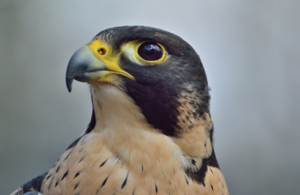Public call for evidence launched to inform review of ‘wild take’ licensing for falconry and aviculture
Members of the public, falconry, aviculture, conservation and welfare groups invited to provide input to Natural England review of ‘wild take’ licensing

Image by Ray Miller from Pixabay
Natural England has today (21 September) launched an eight-week public call for evidence as part of its review into the licensing of ‘wild take’ in England – a practice which involves the taking of birds of prey from the wild for use in falconry and aviculture.
All wild birds are fully protected under law. However, falconry and aviculture are listed in the legislation as purposes for which licences may be granted in certain circumstances, provided there are no satisfactory alternatives and no negative conservation impacts. Natural England is responsible for determining applications for such licences on behalf of the Environment Secretary. Licences may only be granted on a selective basis and for a small number of birds.
Falconry and aviculture have been practised in England for centuries and formerly relied on the taking of birds from the wild. However, due to concerns about bird of prey population declines, legal ‘wild take’ for these purposes has not been practised in England for several decades, with the sector relying instead on the use of captive-bred birds. Now, with wild populations of some bird of prey species recovering – such as the peregrine falcon which has a conservation status of green – there is renewed interest in this activity. This has led to an increase in applications for licences and a need to review the evidence base.
The review will enable Natural England to streamline its assessment of future ‘wild take’ licence applications and ensure that decisions on whether or not to grant licences are transparent and based on the most up-to-date evidence available. Falconry, aviculture, conservation and welfare groups, academic experts and members of the public are encouraged to submit their views and provide supporting information and evidence on issues including the modern practice of falconry and aviculture in England, potential alternatives to sourcing birds from the wild, the conservation and welfare implications of licensed wild take, and risks associated with the illegal export trade.
The public call for evidence is open to anyone to respond to and seeks information from all stakeholders with an interest in the future direction of wild take licensing in England. Respondents are asked to provide evidence to support their views where appropriate and to signal if they are willing to be contacted to take part in follow-up interviews and workshops on this topic. You can submit your views here. For further information, please contact wildtakereview@naturalengland.org.uk.
Natural England is leading this review with support from Defra, working closely with other public bodies/agencies across the UK including APHA, NWCU, and JNCC. Wild take licensing has been temporarily suspended while this review takes place.
Further information:
- The British Falconer’s Club describes falconry as “the sport of taking wild prey…in its natural state and habitat by means of trained hawks”
- The Avicultural Society describes aviculture as “the keeping and breeding of…birds other than domesticated varieties”.
- The last wild take licences were issued by Natural England in 2020, permitting a small number of peregrine falcon chicks to be taken from the wild. The licenses expired earlier this year with no chicks having been taken.